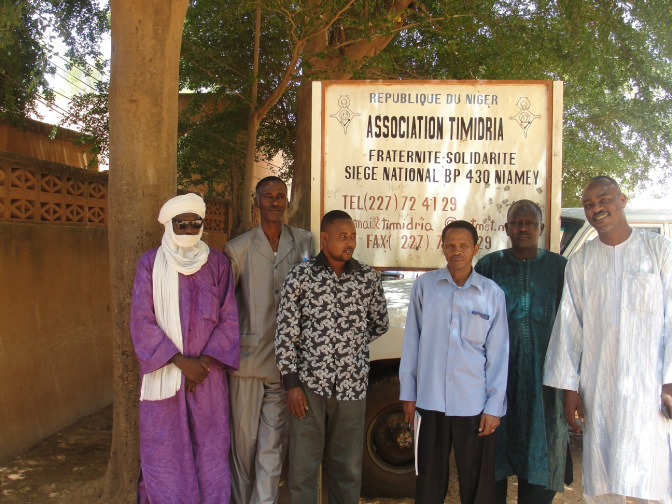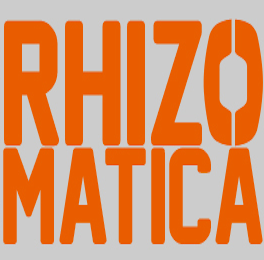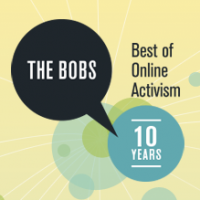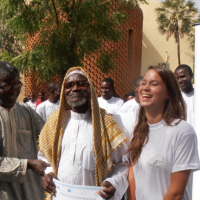Among the thousands of bloggers publishing about Human Rights on Blog Action Day on October 16, 2013, Rising Voices grantees, past and present, contributed to the effort. Blog Action Day hopes to “unite the world’s bloggers by posting about the same issue, on the same day, in order to raise awareness and trigger a positive global discussion…”
Amigos de Januaría [pt], a grantee project in 2011, works to report on local government in the town of Januária, Brazil. They contributed to Blog Action Day with an article about the importance of Human Rights in relation to the right to access information about one's local government:
Choosing one's representatives is a universal right, as is being able to obtain information about the government that you helped to select… In practice we have noted that it is difficult to obtain public information, even if there is specific legislation requiring its disclosure. Is it that governments prefer publicity in place of accountability? We need to fight for this right to be effectively met. The right to access information!
This year's grantee Mapping for Niger also contributed a post written collaboratively by Orsolya Jenei, Fatiman Alher and Tanimoune Mossi Garba, specifically about contemporary slavery in Niger. In preparation for the event, the team visited Timidria, a Nigerien association working to abolish slavery, and afterwards then placed the organization on OpenStreetMap as part of their project. The post called for immediate action by Nigerien politicians.
The practice [of slavery] persists due to the ignorance of human rights and civic duties of citizens. Social inequality, and manipulation via the false pretexts of culture or religion, has left slavery deeply engrained in society since the time of colonization despite the efforts of different associations and organizations to combat it. Slaves also often consider their master to be “a little god on earth”… so they stay and follow the rules… Let’s only hope that our politicians recognize this and do their best to not to delay the resolution of this issue, and work to accelerate the resolution of this national disgrace.
Two members of the another RV alumni project – ConVerGentes, which formed part of the HiperBarrio project from Medellín Colombia reflected on the topic of human rights as seen from the local community of La Loma, where the youth gather in the local library to tell the story of their surroundings. The blogger Lady Carpe Diem asks, “How can we talk about (human rights), when fear paralyzes us and institutions are delegitimized? [es]“
And the blogger Argos recalls a blog post published by Akenaton [es], a local artist from La Loma, who wrote a poem about a local resident Teresa. She was shunned by other residents because of her struggle with mental illness, which may have resulted after a tragedy took the life of her nephew, who she had been caring for as if he was her own son. Teresa was not allowed to leave her house, an act that did not respect her human rights, and she spent her remaining years in solitude. The poem begins:
¡Pobre vieja! allí encerradita en su casa.
Es ahora prisionera en esa casa vieja, en la que antes fué reina.
Pero qué se puede hacer… Así son las cosas por esta villa.
Se le ve a diario mirando a la calle desde su ventana;
como si fuera una estampa, como si tansolo allí estuviera pintada;
como si no fuera nada,
Con los ojos tristes y el cabello enmarañado;
Con sus manos de otros días, apretando los barrotes que la tienen confinada.
She is now a prisoner in that old house, where she was once the queen.
What can be done now?… that's the way things are in this town.
You see her looking out into the street everyday from her window;
as if it was a stamp, as if it was a painting;
as if it was nothing,
With her sad eyes and tangled hair;
Wither her hands from past days, squeezing the bars that confine her.
There were many contributions from Global Voices authors, and you can follow the Twitter hashtags#BAD13, #HumanRights and #Oct16.





3 comments